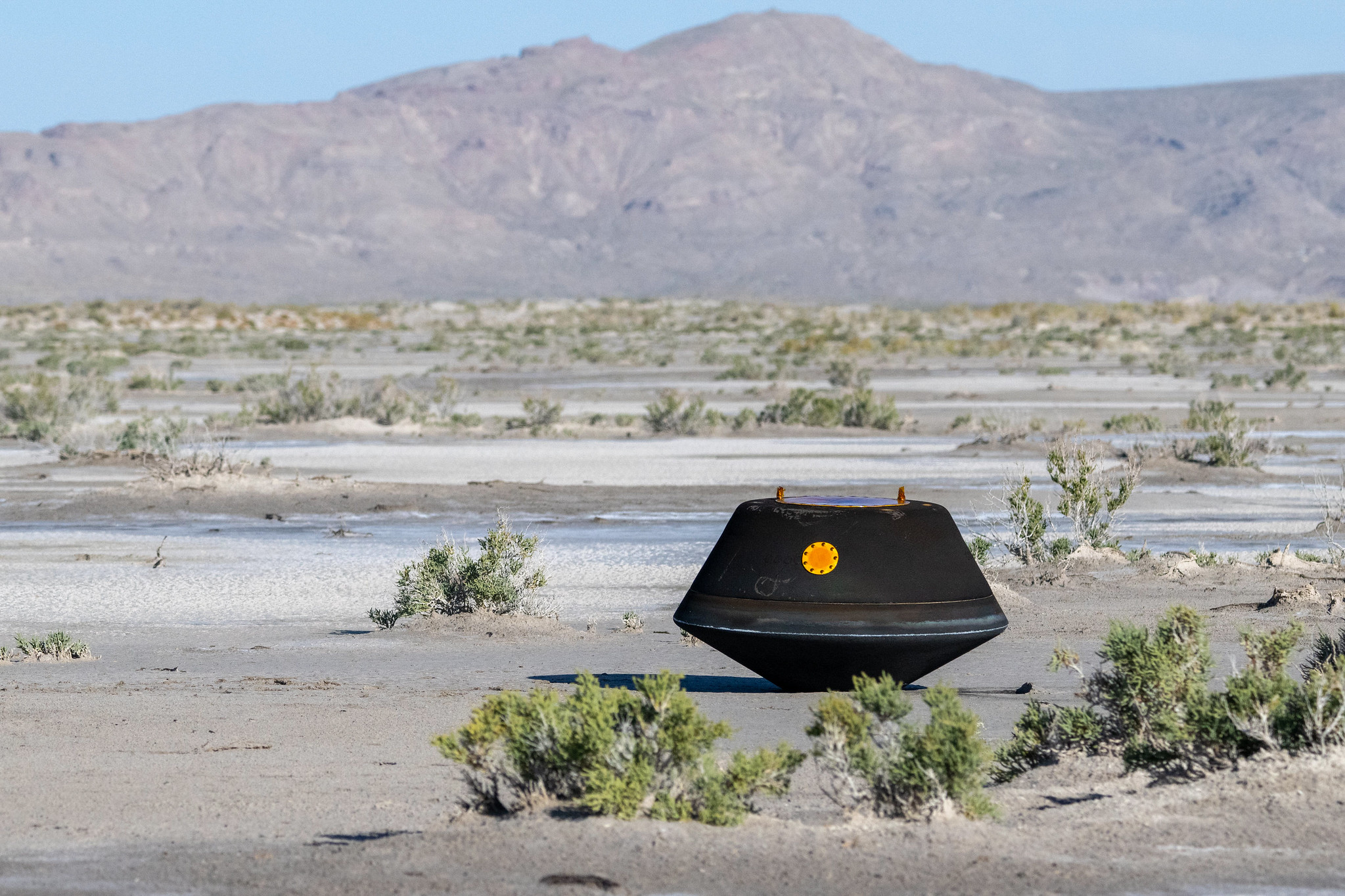Cinephiles will recall that when the dead in Night Of The Living Dead start rising from their graves to feast upon the living, they do not do so spontaneously nor inexplicably. A TV news report watched by survivors holed up in a farmhouse features a scientist theorizing that the cause of the outbreak could be radiation from a recently returned probe to Venus that exploded in the atmosphere. So it is well-established that going to space and bringing space stuff back is a recipe for zombies.
In what NASA will swear is totally unrelated news, on Sunday the OSIRIS-REx spacecraft completed its seven-year round trip mission, bringing back to Earth a sample of rocks and dust from the distant asteroid 101955 Bennu. NASA insists the material will shed light on the early composition of our solar system, and will not transform long-buried bodies into ghouls hungering for warm human flesh.
"Bennu is a potentially hazardous asteroid," said NASA Administrator Bill Nelson, ostensibly referring to its 1-in-1,750 chance of impacting Earth between 2178 and 2290 and not the dangers warned about by George A. Romero in his seminal 1968 film.
OSIRIS-REx, an acronym that stands for Origins Spectral Interpretation Resource Identification Security Regolith Explore, and references the Egyptian god of death and resurrection—hmmm—touched down on Bennu for all of five seconds, collected roughly 250 grams of material, then lifted off again in a cloud of dust. Bennu, a particularly primitive asteroid the size of a football stadium and formed some 4.5 billion years ago, is considered a time capsule of the early solar system, and scientists expect its contents to shed light on planetary formation. They also hope to find organic molecules and possibly even evidence of liquid water, which would support that elements necessary for life have been synthesized in deep space, and could theoretically have been brought to Earth by meteorite impacts.
After a three-year journey back to Earth, on Sunday morning OSIRIS-Rex dropped off its package from 63,000 miles above the planet. The sample return capsule pierced the atmosphere four hours later, and 10 minutes after that the capsule gently parachuted to the ground in Utah. Fifteen minutes after touchdown, NASA personnel cautiously approached the capsule, each of them no doubt keeping on eye on the others for early signs of zombification.
After a journey of nearly 3.9 billion miles, the #OSIRISREx asteroid sample return capsule is back on Earth. Teams perform the initial safety assessment—the first persons to come into contact with this hardware since it was on the other side of the solar system. pic.twitter.com/KVDWiovago
— NASA (@NASA) September 24, 2023
Oh sure, some of you Pollyannas will point out that JAXA has already successfully completed two asteroid sample return missions without Japan being transformed into a nation of ravenous reanimated cadavers. But NASA is taking no chances. The OSIRIS-REx capsule was immediately transferred to a clean room, and its contents subjected to a continuous flow of nitrogen. The stated reason is that since nitrogen doesn't react with most elements, this will keep the sample uncontaminated by Earthly matter, thus remaining pure for research. That's the stated reason, anyway. No mention of the Johnson Space Center being overrun by shambling corpses seeking the fresh brains of their onetime coworkers. You just have to read between the lines a little.
Ensuring that any conjectural zombie outbreak is not localized or easily containable, NASA will be sending samples of Bennu around the world.
Up to a quarter of the sample will be distributed to 233 scientists on the OSIRIS-REx team who represent 38 institutions globally. 4% will be given to the Canadian Space Agency, and 0.5% to JAXA (Japan Aerospace Exploration Agency). The rest, about 70%, will be preserved at NASA’s Johnson Space Center (and White Sands) for scientists outside the mission team and for future generations of scientists.
Meanwhile the OSIRIS-REx spacecraft itself, after dropping off its payload, is currently zooming toward its next target, the asteroid 99942 Apophis. Human understanding of how space causes zombies has progressed little since 1968, but NASA is taking herculean steps.






